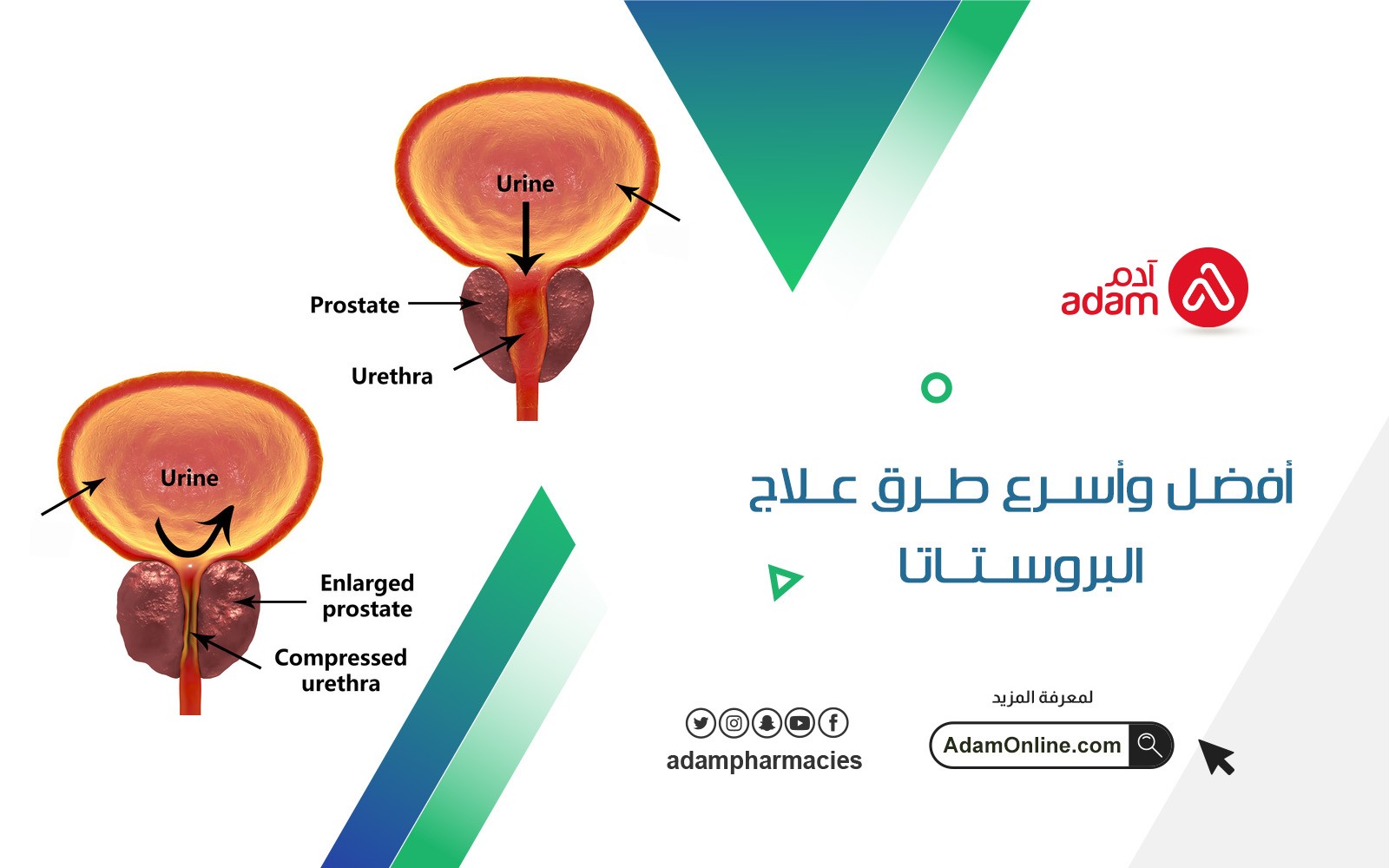The best and fastest ways to treat prostate

The type of prostate treatment usually depends on the severity of symptoms, the patient’s age, general health, and the size of the prostate. In some cases, treatment may not be necessary. Doctors may decide to monitor the prostate and make a lifestyle change for the patient, but in other cases the doctor may prescribe some medications or resort to the surgical option. .
What is prostatitis?
Prostatitis is inflammation of the prostate gland, a walnut-sized gland located below the bladder and part of the male reproductive system.
Prostatitis may be the result of an infection as well as various other causes.
Prostatitis is the most common crisis in men under the age of 50, and prostatitis can be an acute disease or a chronic condition in some cases.
How is the prostate treated?
The treatments offered to you depend on the type of prostatitis you've been diagnosed with.
Every man will respond to treatment differently. If something doesn't work, you should be able to try something else, and there are things you can try to help yourself with.
If your symptoms do not improve with your doctor's treatment, seek a referral to a urologist who specializes in prostatitis.
You may need to try more than one treatment because no standard treatment works for all men.
The first step is to take antibiotics. If symptoms do not decrease, treatment with these medicines is usually stopped.
A common strategy is to use cefixin to treat prostatitis. Muscle relaxants and alpha blockers may be prescribed if muscle spasms cause pain or spasms in the urinary tract.
Treatment of the prostate with antibiotics is the most common. Your doctor will give you the best medicine based on the type of bacteria.
If symptoms are severe, intravenous antibiotics may be needed
. The course of treatment ranges from one and a half months, but a longer treatment is required for chronic or recurrent prostatitis.
Non-steroidal anti-inflammatory drugs (NSAIDs) are some of the treatments available for prostate infection.
Anti-inflammatory drugs, such as non-steroidal anti-inflammatory drugs (NSAIDs), can relieve pain.
Medications that inhibit prostate growth, such as 5-alpha reductase inhibitors, may also be used.
Permanent treatment of prostatitis with alpha
-blockers These medications relax the bladder neck and muscle fibers where the prostate attaches to the bladder. These medications can relieve symptoms of the disease, such as painful urination.
However one should be careful that all these medicines are used only on the advice of a specialist and that the patient cannot take them alone.
Prostate massage
therapy Prostate massage therapy This procedure is similar to a prostate exam and is done through the anus with a finger. Prostate massage can reduce symptoms of inflammation, but doctors disagree about the effectiveness of this procedure.
The therapist massages the prostate against the rectal wall by gently passing his finger over the back passage, using gloves and gels to make it more comfortable without causing any pain.
If your prostate is sensitive or painful, the hospital can do this under general anesthesia until you fall asleep and feel no pain.
Treating the prostate without medications
Patients with an enlarged prostate with mild symptoms may not need treatment other than constant monitoring to ensure that the condition does not get worse. A visit to the doctor is required once a year to review the progress of symptoms, conduct an examination and perform some simple laboratory tests, and you should monitor:
- How often do you need to urinate?
- How full is the bladder even after emptying?
- Difficulty starting or continuing to urinate.
- Weak urination.
- anuria
- Urine leakage
A health care provider may recommend lifestyle changes for men whose symptoms are mild, including:
- Reducing fluid intake, especially before going out in public or before bed.
- Reduce your intake of caffeinated drinks.
- Avoid alcohol.
- Avoid or monitor the use of certain medications, such as: decongestants, antihistamines, antidepressants, and diuretics.
- Bladder training to hold urine for longer periods.
- Empty the bladder frequently and before going to places where it is difficult to reach the toilet.
- Double urination by waiting a few moments after you have finished urinating before trying to return again.
- Treat and prevent constipation by eating fiber.
- Drink less fluids before bed.
- Pelvic floor muscle exercise.
- Learn several exercises, such as breathing, relaxation, and muscle exercises, to help take the mind off the need to pee.
Preventing an enlarged prostate BPH
affects many males as they age, and it may not be possible to prevent it. However, the following factors may help reduce the risk:
- Maintaining a healthy weight.
- Exercise regularly.
- Eat a healthy diet that includes plenty of fresh fruits and vegetables.
- Avoid alcohol.
- Regular screening for prostate cancer.





























